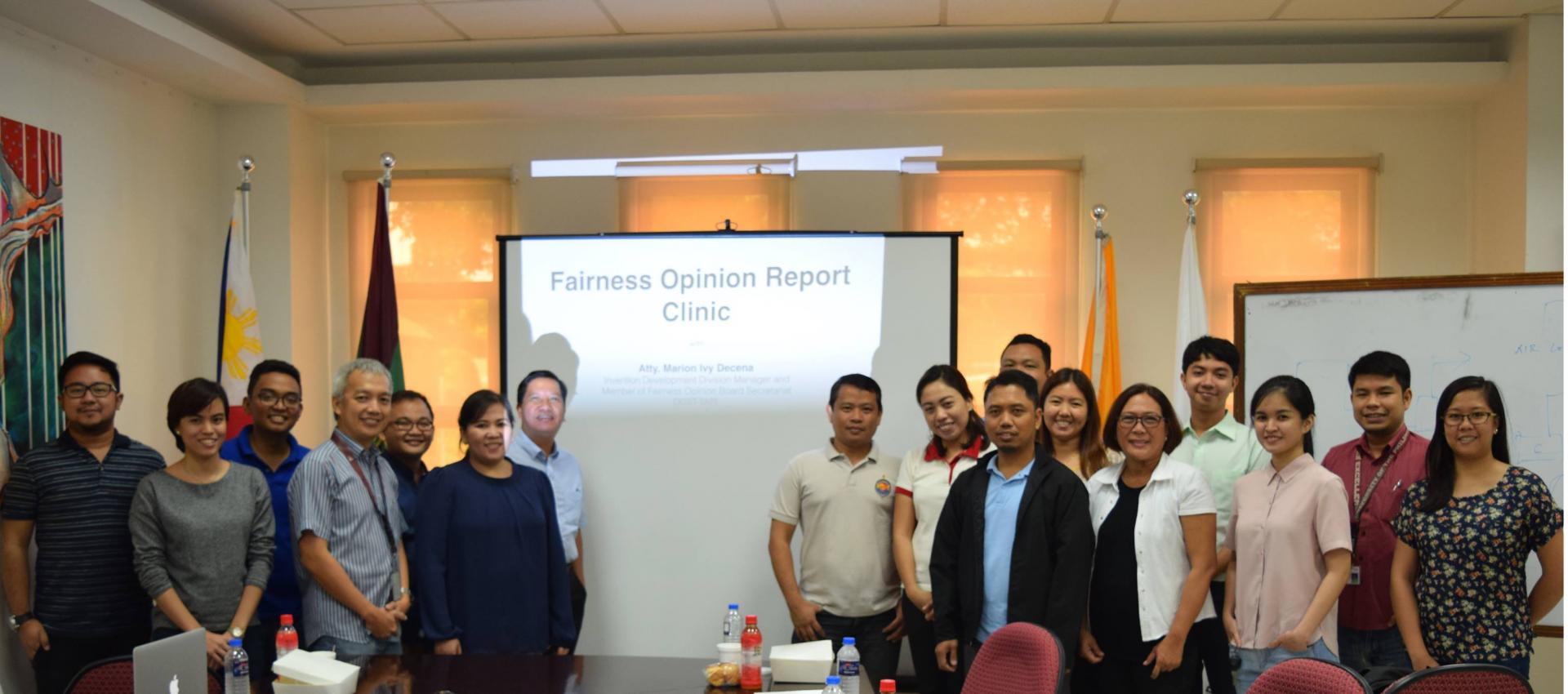No one definitely wants to be aggrieved, especially when certain things are at stake. This is probably the reason why people or institutions forging a deal of any kind would want a fair and equitable transaction to ensure that neither of the parties involved are deprived or disadvantaged.
Considered to be one of the final aspects in private mergers or sales deals, a fairness opinion is sought to create a total impartial review from a financial perspective to ensure that an agreement to be signed is fair and is in the best interest of those participating in the transaction.
In the same context, the government as the trustee of the Filipino people’s money, safeguards public interest by doing the same aforementioned process whenever engaging in deals. Said to be an innovative mechanism instituted on a legal perspective to safeguard public funds, the Republic Act 10055 or the Philippine Technology Transfer Act of 2009 mandates the issuance of a Fairness Opinion Report (FOR) by an independent Fairness Opinion Board (FOB) whenever commercialization is undertaken for a government-funded research, subject only to certain exception.
Since Department of Science and Technology as a government funding agency, provides a wide range of financial assistance to Filipino scientists, inventors, start up companies, and organizations, it is befitting that whenever the Filipino people’s money is granted for any research and development (R&D) activity, utilization and commercialization of outputs should be pursued. The creation of FOB becomes indispensable in the succeeding commercialization activities.
Consequently, the FOB provides a comprehensive and detailed assessment of whether a proposed technology transfer agreement between a Research and Development Institute (RDI) and a technology adopter is fair to the government. Generally, whenever publicly-funded R&D outputs are set for commercialization, the FOB reviews fairness of the transaction, as to its financial aspects, such as the licensing or royalty fees that are specified in the licensing agreement.
After a thorough assessment, the FOB then submits the FOR which may contain among others, review and analysis of the proposed transaction, financial statements, industry information, economic conditions, as well as recommendations on the said transaction.
While some may consider this process as an additional burden for the technology adopters, on a belief that it is another bureaucratic step that might impede the transfer of technology, the FOR protects the best interest of technology generators and the government as a whole.
The issuance of FOR serves as a safeguard mechanism to ensure that the Philippine government avoids entering into business transactions that can be highly disadvantageous to the government and Filipino inventors especially for government-funded researchers where public funds are on the table. For indeed, to deter corruption and waste of public funds and to maximize benefits from R&D, is the true spirit of the law in incorporating safety mechanisms such as FOR in the pursuit of an effective technology commercialization.
DOST-TAPI S&T Media Service
NUR LEMUEL C. CASTILLO
